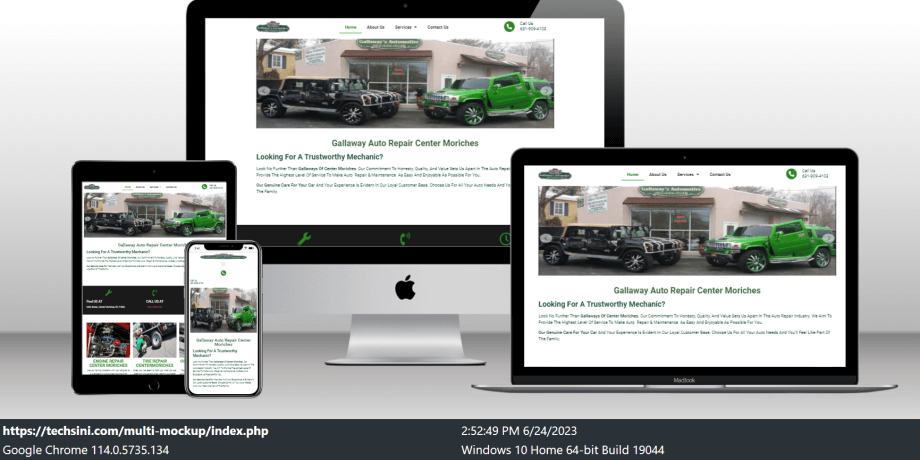Power of Single-Subject Webpage.
In the realm of Search Engine Optimization (SEO), the principle of dedicating each page on your website to a single subject is a significant practice for enhancing your ranking for targeted keywords and their related terms. This is often known as having a “topic-focused” or “keyword-focused” page.
The first reason for this approach is to provide clear, direct content for search engine crawlers. These crawlers, or bots, are algorithms used by search engines like Google to inspect, analyze, and index the information on your web pages. When a page is dedicated to one subject, it becomes more straightforward for these crawlers to comprehend the theme of the page. Consequently, the search engine can more accurately index the page for relevant search queries, improving its potential to rank higher for the targeted keyword and related terms.
Furthermore, a focused webpage also contributes to enhancing the user experience (UX). Web users generally have specific needs or questions when they perform searches. If a page presents information about multiple topics, it may not fully satisfy the user’s query, leading to a lower dwell time, higher bounce rate, and possibly, poor user feedback. These factors can negatively impact your SEO. Conversely, a page that is dedicated to a single subject will likely provide comprehensive, satisfying answers, increasing dwell time and encouraging further engagement with your site.
Maximize SEO Performance: The Power of Single-Subject Webpage
The single-subject approach also simplifies the task of keyword optimization. Concentrating on one topic per page can incorporate your main keyword and relevant long-tail variations more naturally and efficiently, avoiding keyword stuffing. With the use of LSI (Latent Semantic Indexing), these are terms that are closely related to your main keyword. Search engines can get an even more precise understanding of the context of your content.
Moreover, pages with a singular focus can be linked internally more effectively. This internal linking strategy not only helps with site navigation but also distributes page authority throughout your site and indicates to search engines the hierarchy of your website. Each internal link signals search engines about that page’s relative importance and context. When done correctly, this can give an additional boost to your SEO performance.
Lastly, a single-focused page is easier to track and analyze performance. You can easily track your results and keep up with your SEO strategy. Such as keyword optimization, content quality, backlinks, and more, on the ranking of that page. This paves the way for more data-driven SEO strategies, where you can learn from your successes and failures, then iterate for better results.
To sum up, every page on your website should focus on one subject if you want to rank for your main keyword and any related keywords. This strategy promotes better indexing by search engines, provides a superior user experience, simplifies keyword optimization, improves internal linking, and facilitates more efficient performance analysis. This, in turn, maximizes your chances of ranking higher than your competition, and getting you more targeted traffic.


Let me explain the difference between
a Single-Subject Webpage and a One-Page Website:
Single-Subject Webpage:
A Single-Subject Webpage is a type of web page that focuses exclusively on one specific topic, subject, or theme. It contains in-depth information, content, and resources related to that particular subject. A Single-Subject Webpage aims to provide comprehensive and detailed information about the chosen topic.
Key characteristics of a Single-Subject Webpage:
- Specific focus: It concentrates solely on one subject, providing detailed and exhaustive information related to that topic.
- In-depth content: The page typically contains a substantial amount of content, including text, images, multimedia, and other relevant resources.
- Navigation: A Single-Subject Webpage may have its own navigation system, allowing users to explore different sections or subtopics within the main subject.
- Authority: These pages are often created by experts or enthusiasts with extensive knowledge about the subject, establishing credibility and trustworthiness.
- SEO focus: Single-Subject Webpages are designed to target specific keywords and optimize search engine rankings for that particular subject.
One-Page Website:
A One-Page Website, as the name suggests, is a website that consists of a single webpage. Instead of having multiple pages with separate URLs, all the content is contained within a single, vertically-scrolling page. One-Page Websites are usually used for simpler projects or when presenting a concise and straightforward message or product/service is needed.
Key Characteristics of a One-Page Website:
- Simplified structure: All the content, including the main message, features, and contact information, is placed on a single, continuous page.
- Scrolling navigation: Users navigate the website by scrolling up or down rather than clicking on separate pages.
- Concise information: Due to limited space, One-Page Websites focus on concisely presenting the most essential information.
- Clear call-to-action: One-Page Websites often have a prominent call-to-action (CTA) that encourages users to take a specific action, such as purchasing or signing up for a service.
- Mobile-friendly: One-Page Website does not have a navagation menues are often responsive and optimized for mobile devices, making them easy to navigate on smartphones and tablets.
In summary, a Single-Subject Webpage is a content-rich page that provides in-depth information on a specific subject. At the same time, a One-Page Website is a complete website contained within a single webpage, typically presenting a simplified and concise message with a clear call to action.
